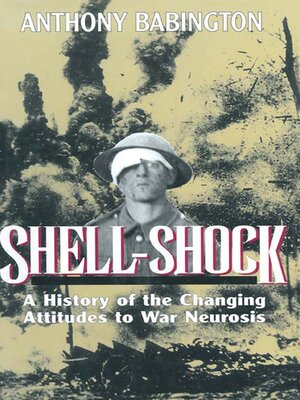
Sign up to save your library
With an OverDrive account, you can save your favorite libraries for at-a-glance information about availability. Find out more about OverDrive accounts.
Find this title in Libby, the library reading app by OverDrive.



Search for a digital library with this title
Title found at these libraries:
| Loading... |
As Anthony Babington is careful to point out in his forwrd, this is not a medical book. It is, rather, a distillation, in words which any layman can understand, of the long struggle by the medical profession, and by influencail civilians of an understanding frame of mind, to persudae the Service Chiefs, in particuliar Senior army pfficers, that soldiers can only stand so much fighting. In the First World War, as Babington points out, men were shot at dawn for cowardice or desertion. One can only wonder that many more didn't crack up under the appalling stress to which they were subjected. By 1939 the situation had improved, and of course the Second World War was a much more mobile affair, without the set-piece mass slaughter that characterised the earlier conflict. It may also be remarked that it was much easier for the average private soldier to realize that he was fighting for a good cause, the Nazis being more readily identifiable as bogeymen than the soldiers of the Kaiser. There are those who argue that in the postwar era, things have gone too far in the opposite direction. Indeed Babington quotes the Duke of Edinburgh as saying: "We didn't have counsellers rushing around every time someone let off a gun asking "Are you alright" You just got on with it." Nonetheless few would argue that a counsellor is preferable to a firing squad. Judge Babington has produced a fascinating, if sometimes harrowing, study of the effects of war upon the fighting soldier, of the gradual understanding of the problem of battle fatigue and of the more merciful and sympathetic approach to its treatment. Readers of his earlier works will appreciate that it is a subject which he is uniquely qualified to handle.






